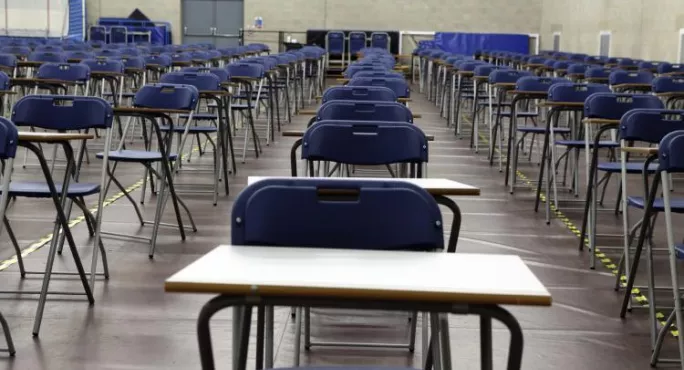- Home
- Coronavirus: GCSEs are cancelled - so what’s next?
Coronavirus: GCSEs are cancelled - so what’s next?

And so, with the announcement last week that all GCSE and A-level exams are to be cancelled (and with them, all league tables and data comparison) for 2019-20, education as we know it has quickly transformed beyond recognition. Within a few short days, everything teachers had become used to felt obsolete.
But what does this mean for teachers, learners and parents?
In the days following the announcement at least, this has predictably meant a lot of uncertainty, anxiety and concern for students and teachers (and everyone else), with thoughts turning to the impact on college, apprenticeship and job applications. Thankfully, with further guidance released by the Department for Education, we now have further clarity on what this means for students, and on what basis grades will be awarded.
Coronavirus: Calculated grade may be possible for technical courses
GCSE resits: Students to receive 'calculated' grades
Covid-19 lockdown day 7: 'Everyone has joined us'
The impact of coronavirus on GCSEs
With the government announcing that grades will be calculated using a range of factors, there is a least some hope that grades will be awarded fairly. This will, of course, depend upon what these factors are. It has generally been accepted that this will be some combination of mock exam results, predicted grades, prior achievement and in-class assessment. However, each of these poses potential stumbling blocks.
All teachers can identify students with poor mock exam results who are likely to achieve impressive grades in final exams. Most teachers can also identify students who achieve outstanding results in key stage 2 only to become academically apathetic through school, and fail to achieve in Year 11 and further education.
Predicted grades can also be far too subjective, especially when the stakes are so high.
An underlying issue that is receiving less media attention is the potential impact this might have on students' skills. As much as practitioners around the country are working around the clock to support and guide students in the brave new online world, this is no replacement for quality contact time in a classroom, giving regular, high-quality feedback to develop student knowledge and understanding (it could be, but not without significant investment and training – but that’s another story).
If the situation across Europe is anything to go by, it is unlikely students will re-enter classrooms this academic year, meaning they will have had no face-to-face teaching from the middle of March until September. With many GCSE and A-level students frustrated and dispirited due to exam cancellations, their lack of motivation could have a severe impact.
This is where government communication will be vital – if the message that completing work via distance learning can impact final grades is communicated quickly enough and well enough (it already has been in some quarters), students may yet be able to refocus. This also represents a much-needed second chance for those students who may have given up on achieving their target grade, as they now have an opportunity to complete work that could directly impact their grade.
Though some of the impact on students is unknown (at least before we receive the exact detail on grade calculations), the impact on teachers is already being seen.
Teachers are already being contacted by parents to suggest that their child’s predicted grade does not fairly reflect what they are capable of. In some settings, this has gone further, with students approaching teachers to ask for an improved predicted grade.
Government guidance
The concern is that the changes will heavily impact teacher workload. Collecting, collating and submitting evidence will likely fall on their shoulders, with accuracy proving paramount (in what will be a new and untested process). Hopefully government guidance will be explicitly clear in what work is required, over what time period and in what conditions it was completed.
There are, however, silver linings for teaching staff. The opportunity to develop and implement new skills in digital classrooms is opening up a range of teaching opportunities with students, and is a move towards a more accessible classroom for many students. Though the coronavirus may keep schools closed until September, the change in delivery models could be the beginning of a new era in teaching.
A further positive is the dialogue between parents and teachers that will be started. With parents likely to now regularly communicate with schools and colleges, there are opportunities to build new and vital relationships in communities.
More keenly, the government will have little option but to significantly improve and increase funding in schools and colleges after they have been so vital.
Whatever the impact and outcome of these changes, there is clearly a range of opportunities and threats to the way teachers work. What is certain is that whatever changes are brought in, teachers' power for collaboration and innovation will be key.
Jonny Kay is head of English and maths at a college in the North East
Keep reading for just £1 per month
You've reached your limit of free articles this month. Subscribe for £1 per month for three months and get:
- Unlimited access to all Tes magazine content
- Exclusive subscriber-only stories
- Award-winning email newsletters



